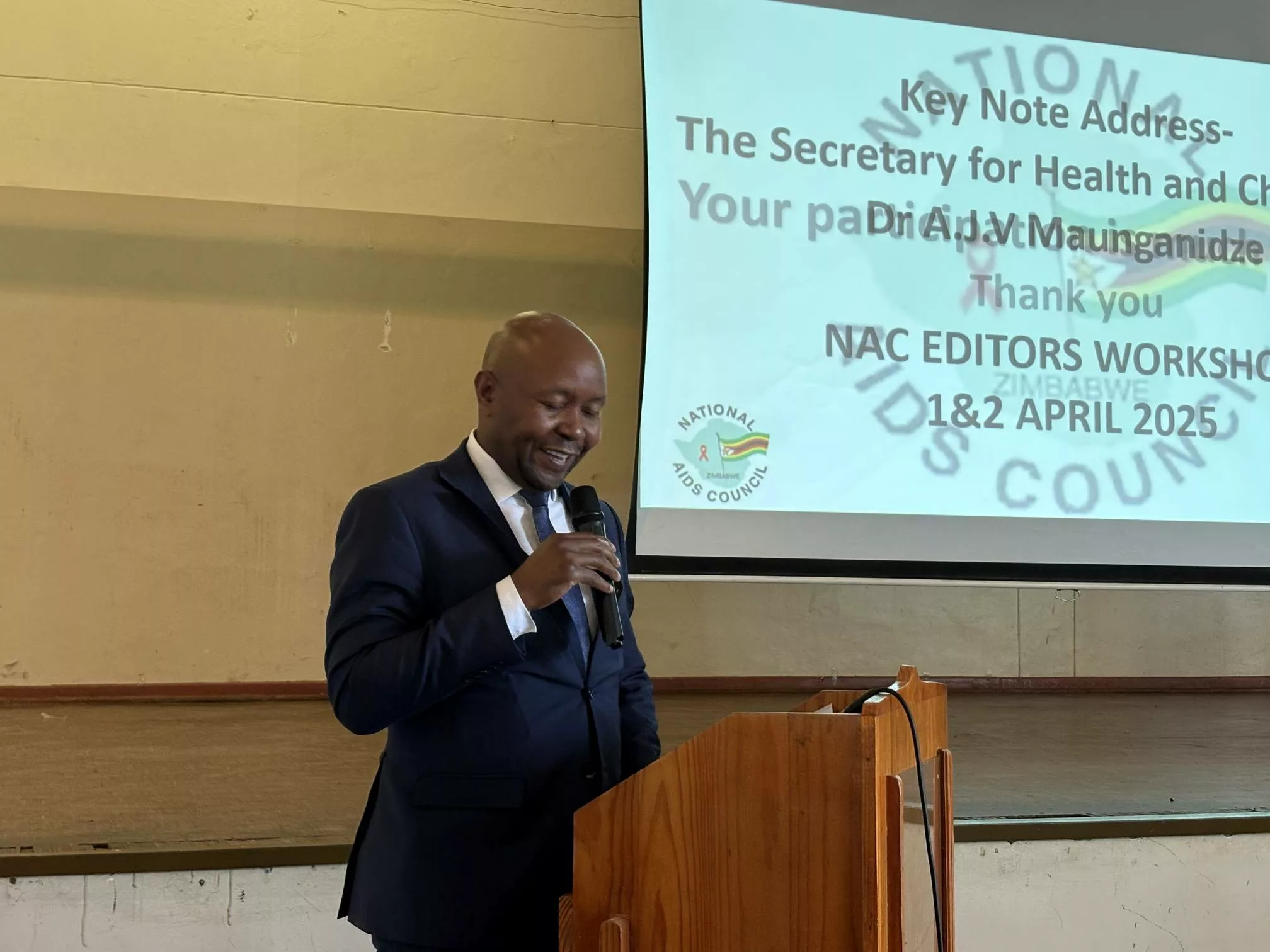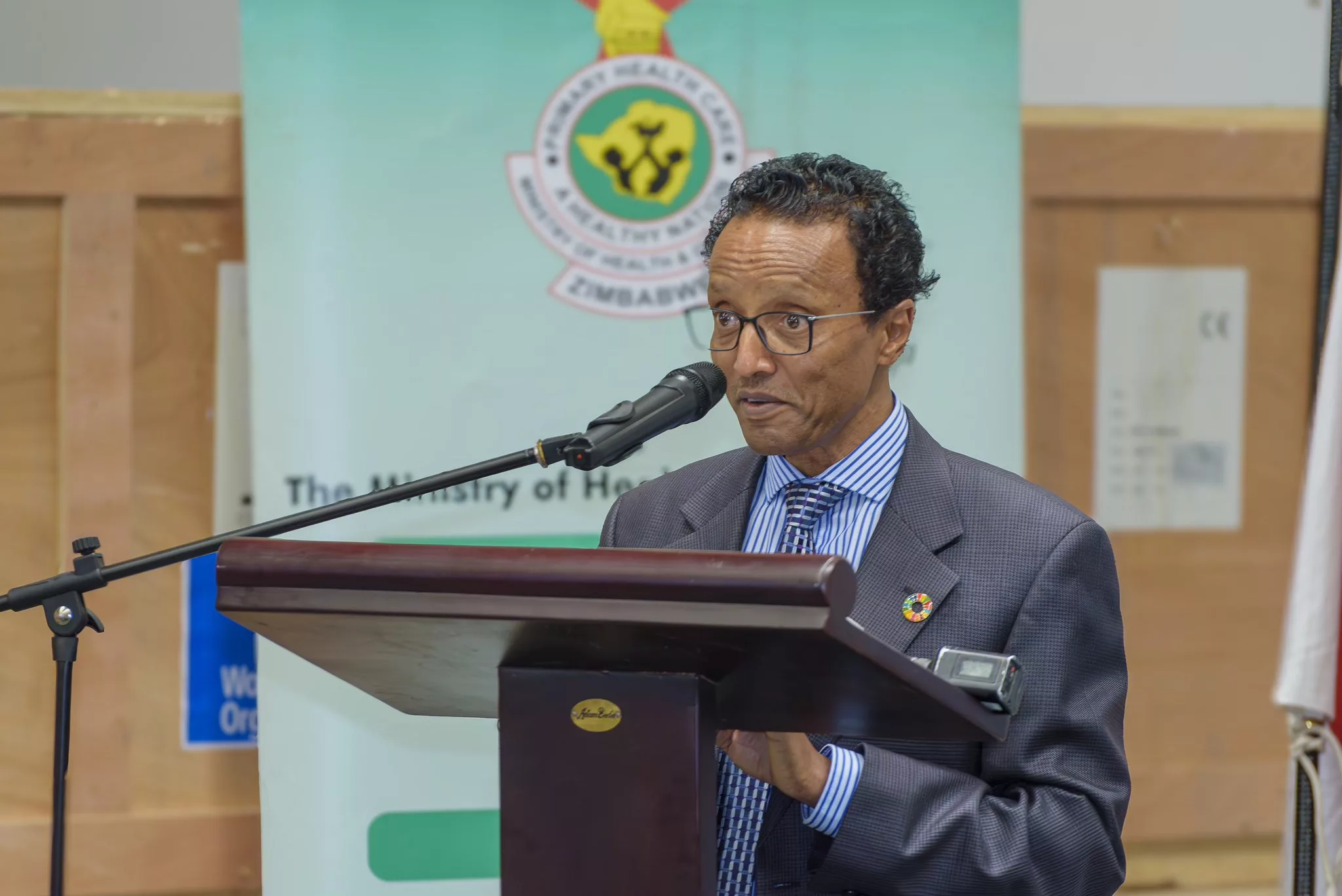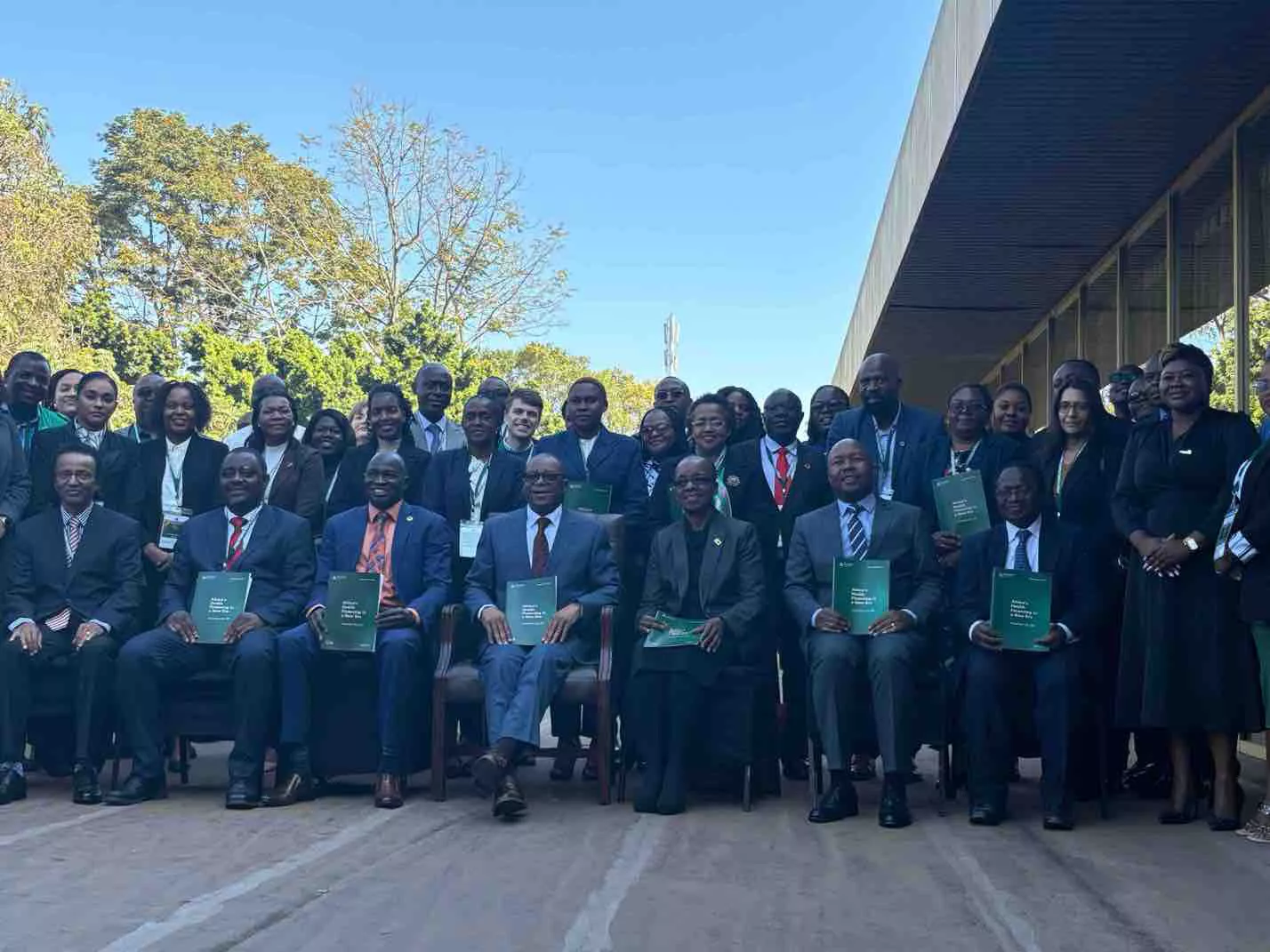|
Getting your Trinity Audio player ready...
|
Dr. Aspect Maunganidze, the Permanent Secretary for Health and Child Care has urged the media, particularly editors and station managers continue to prioritize HIV-related morbidities within their coverage and reports.
He made the remarks in a keynote address during the official opening of the workshop organised by the National AIDS Council for updates on HIV to the media that is running from 1 to 2 April 2025 in Chinhoyi.
“This a platform to share the latest and pertinent updates on the HIV response. I’m sure this will facilitate, in the end, the accurate reporting of HIV matters. Accurate and timely information dissemination must be done especially on public health matters. It helps to inform policymakers, the public, and other media practitioners as well.
“It helps us prioritize interventions in health matters and reduce unnecessary sensationalization. In this regard, this week’s workshop as it has been convened is to ensure that the editors continue to prioritize HIV and other health matters. The aim is to ensure that the editors continue to prioritize HIV-related morbidities within their coverage and reportage. So without correct and current information, the public is usually left to the perils of inaccurate information peddlers,” Dr Maunganidze said.
Nowadays, social media is quite uncontrolled. In that regard, media outlets are very critical in educating and influencing societal attitudes
and practices. Through accurate, objective, and sensitive reporting some myths can be debunked.
“So promoting central media coverage is very important, especially in the HIV sphere, where we have HIV stigma to the consequences of HIV. So if we work together and are responsible, we will be able to reduce the levels of stigma that might come out from some of our publications if they are not correctly edited. I am aware of the collaboration that the editors’ forum has had with the National AIDS Council and the engagements before this.
“So this is just the ultimate engagement that NAC has put as a formal collaboration. However, I am aware of other collaborations that have gone a long way in making sure that the agenda in terms of eliminating HIV as a public health concern by 2030 is achieved,” Dr Maunganidze said.
Zimbabwe has made significant progress in responding to HIV over the years. It has become one of the highlights in many different international forums on how it has made progress in achieving HIV prevention goals.
Looking at the UNAIDS targets, this progress has been met on the strength of the multi-sectoral response within which the media has played a very key role.
The workshop is to cement the principle of the multi-sectoral approach and response and strengthen the media’s role in the response. Despite significant progress in responding to HIV, which has resulted in Zimbabwe achieving the 95-95-95 global targets, challenges remain and there is a need to work together to address those challenges.
New infections have been identified to be particularly in the most vulnerable groups, those who have very little say in health matters and who are disadvantaged.
“So they will be affected quite a lot and they become what we call enablers of HIV transmission. This includes children born with HIV. If the parents and the mother do not adhere to well-outlined guidelines of what to do to prevent mother-to-child transmission, they can be born with HIV. We need to have robust HIV protection mechanisms. There has been a rise in non-communicable diseases in the same population, which means as we make achievements on antiretroviral supply and make sure everyone is on antiretroviral drugs and that they are finally suppressed, it also means they will age.
“As they age, we know that hypertension, high blood pressure, and diabetes will start to set in, so they will be affected by the same disease patterns. In this regard, we now move towards horizontal or integrated interventions, which will make sure that it’s not all about death, just naturally, but other conditions that affect the same patient. Otherwise, our outcomes might be different. It might not be so good if we don’t do an integrated service approach,” Dr. Maunganidze added.
He warned that the situation comes at a time when our health delivery system unfortunately has been affected by the abrupt cessation of funding from some of our foreign partners.
“I’m sure you are aware of the executive order from President Donald Trump and the effects through the funding that we’re giving. We have been able to get funding through PEPFAR, USAID, CDC, and so on. And these were key partners in our implementation matters. As a ministry, however, we are taking steps to ensure that our people are not severely affected, especially those who are already taking antiretroviral therapy.”
Part of the steps being taken include motivating for increased budget allocation and budget reprioritization to make sure that the key priority areas in terms of HIV delivery and prevention of transmission are still taken care of.
National health insurance will go a long way in unlocking funding for the health sector.
Dr Maunganidze said Zimbabwe cannot rely on donors forever. Africa has resources, in particular, Zimbabwe has resources that if it puts its priorities in place, it should be able to fund its health.
“One of the starting points is to make sure that 15% of our budget, as in the Abuja Declaration, goes to health. We need to have strong sustainability roadmaps for all programs that we do in practice. So this is an awakening for Africa to seek other collaborations within the country and in the region so that we still maintain our achievement management.”






